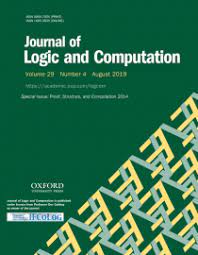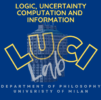
Abstract: Information transmission in social networks is riddled with issues of reliability and trustworthiness. One of the main sources of disinformation can be traced back to agents—human or artificial—whose political or cultural agenda is guided by conspiracy theories. Modelling and understanding the behaviour of such agents within social networks is therefore crucial to approach the disinformation problem. In the present paper, we formulate the logic (un)SecureNDsim*, equipped with a proof-theory and a relational semantics in which negative trust relations are defined formalizing the attitude of paranoid agents, i.e. agents distrusting any information originating from the authority and thereby spreading what can be characterized as the content of conspiracy theories. The logic is implemented in a multi-agent simulation aimed at analysing the effects of conspiracy theorists in networks of agents. In particular, we analyse consensus reaching scenarios and the ability of paranoid agents to induce the spread of potentially false information.
Lorenzo Prandi, Giuseppe Primiero, A logic for biassed information diffusion by paranoid agents in social networks, Journal of Logic and Computation, 2022;, exac020, https://doi.org/10.1093/logcom/exac020
